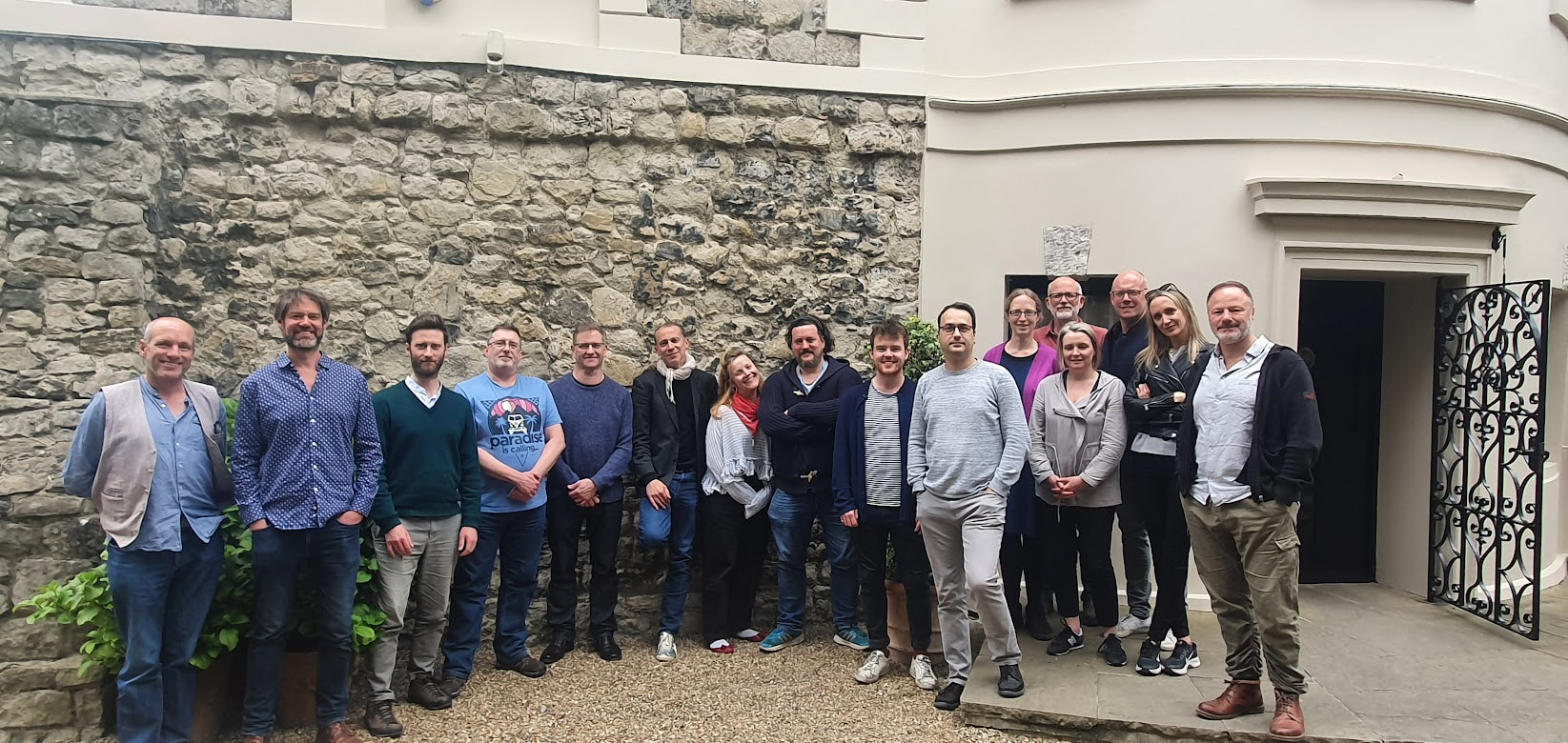|
"Cooped up in this narrow cabin I have beheld the mysteries of goodness. And I am afraid." Billy Budd is an opera by Benjamin Britten to a libretto by the English novelist E. M. Forster and Eric Crozier, based on the short novel Billy Budd by Herman Melville. The opera received its premiere at the Royal Opera House, London, on 1 December 1951. This video is a momentary reflection on a week's collaboration between professional artists and former Prison inmates, working on Benjamin Britten's Billy Budd at the Stone House in Lewisham, London. With permission from Boosey & Hawkes, the work has been arranged for 6 instruments including harmonica, accordion and trumpet, and is the first step in our journey towards staging a full production in HMP Dartmoor. With thanks to the following for their time and commitment to this project: Paul Hopwood, Charlie Johnston, Ben Nelson, Tim Mirfin, Welsh Andy, Zivorad Nikolic, Clare Findlater, George Sleightholme, Nancy Johnson, Angela Whelan, Angus McCall, Neville Stanford, Max Pappenheim, Stevie Higgins, Daisy Evans, George Nick Chron and Yvonne Horsfall Turner. Billy Budd - a brief synopsis: The opera begins with a prologue in which Captain Vere, an old man, ponders the significance of events that took place long ago on board the British naval vessel HMS Indomitable in 1797. Three new sailors, press-ganged from a passing merchant ship, are brought on board, including Billy Budd, a young, strong and handsome recruit. Billy's goodness wins the hearts of all except Claggart ('a depravity according to nature'" and the ship's Master-at-arms), who determines to destroy him. Claggart encourages Squeak to rifle through Billy's belongings, but he is caught by the young sailor. Dansker warns Billy that Claggart has it in for him. Claggart then encourages the Novice — cowed into submission by an earlier beating — to bribe Billy into supporting mutiny, but to no avail. Nevertheless Claggart takes a complaint to Vere, interrupted in his accusation by a brief skirmish with a French frigate that ends with the enemy escaping. Claggart then accuses Billy, who is called in by Vere to defend himself. His stammer, however, silences him, and he knocks Claggart down with a single blow that strikes him dead. At the court martial, Vere fails to speak up for Billy, who is condemned. He goes to his death with Vere's name on his lips. In the Epilogue, we return to the aged Vere, who again scrutinises his role in these events. Why Billy Budd? Billy Budd is primarily concerned with a simple moral question: what happens when the law tells us to do something that, in every possible way, seems wrong? With themes of good versus evil, morality, truth and the physicality of confinement, what better place to explore these themes than in a prison environment: "Cooped up in this narrow cabin I have beheld the mysteries of goodness. And I am afraid." In collaboration with HMP Dartmoor, the PCP proposes to stage a production of Britten’s opera Billy Budd with a diverse cast of 35 inmates who will perform lead roles, sing in the chorus and design sets alongside prison staff and professional singers, directed and coached by a highly- skilled creative team.
0 Comments
Leave a Reply. |
AuthorAdam Green Archives
January 2024
Categories |
